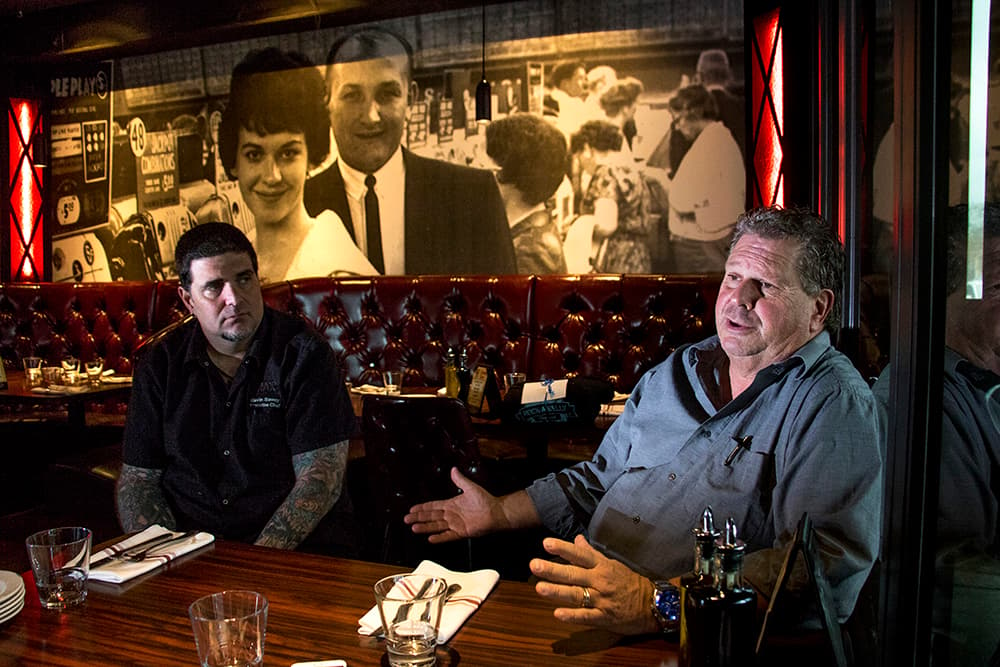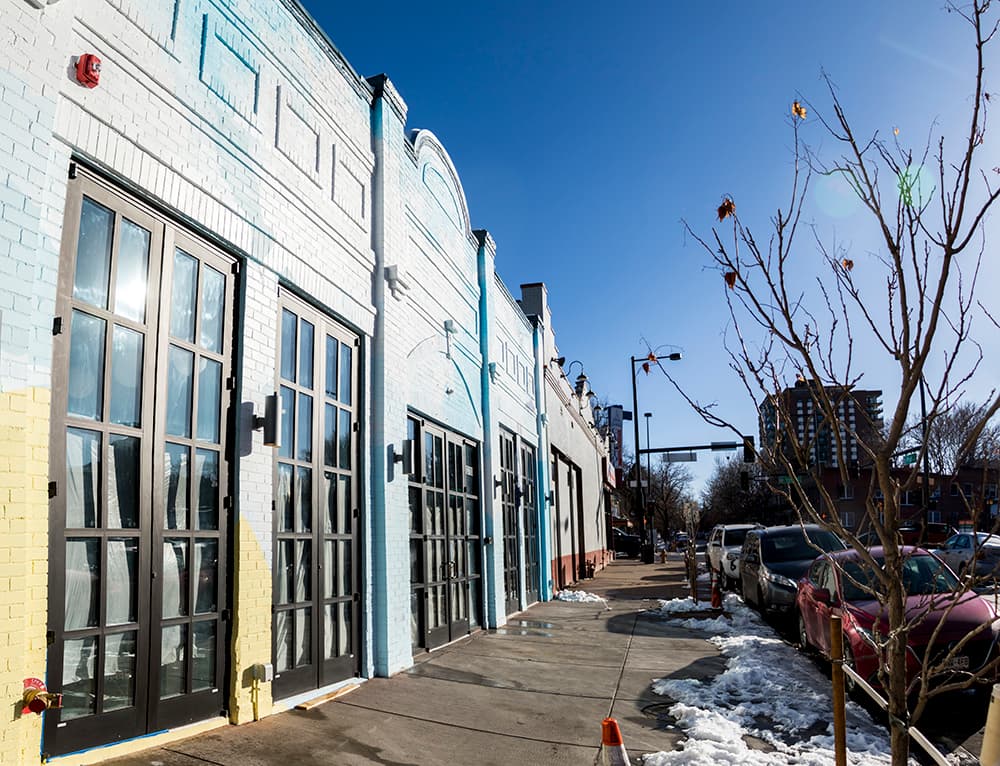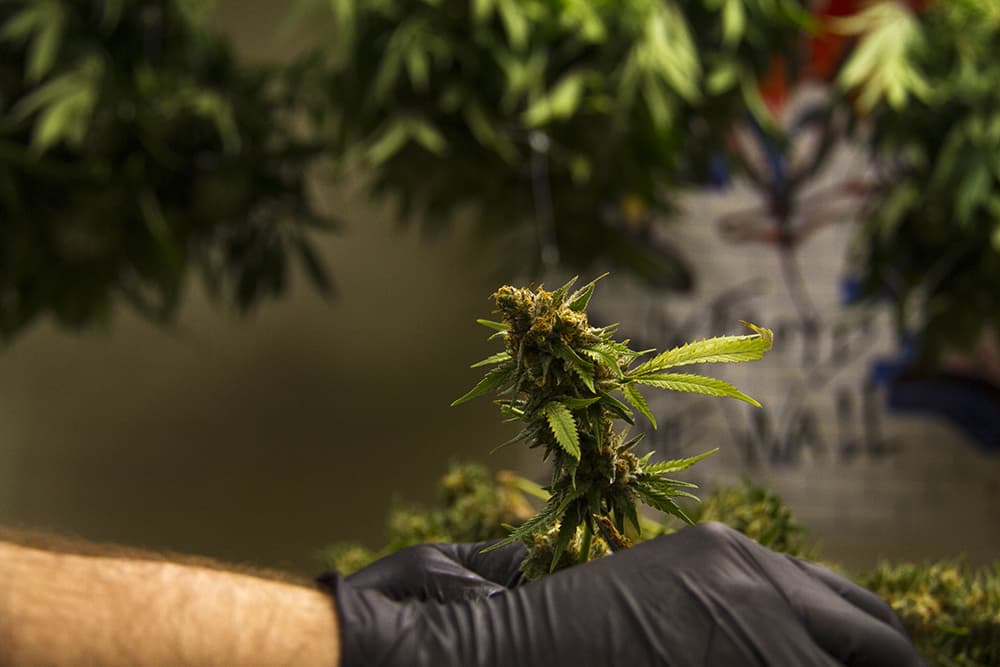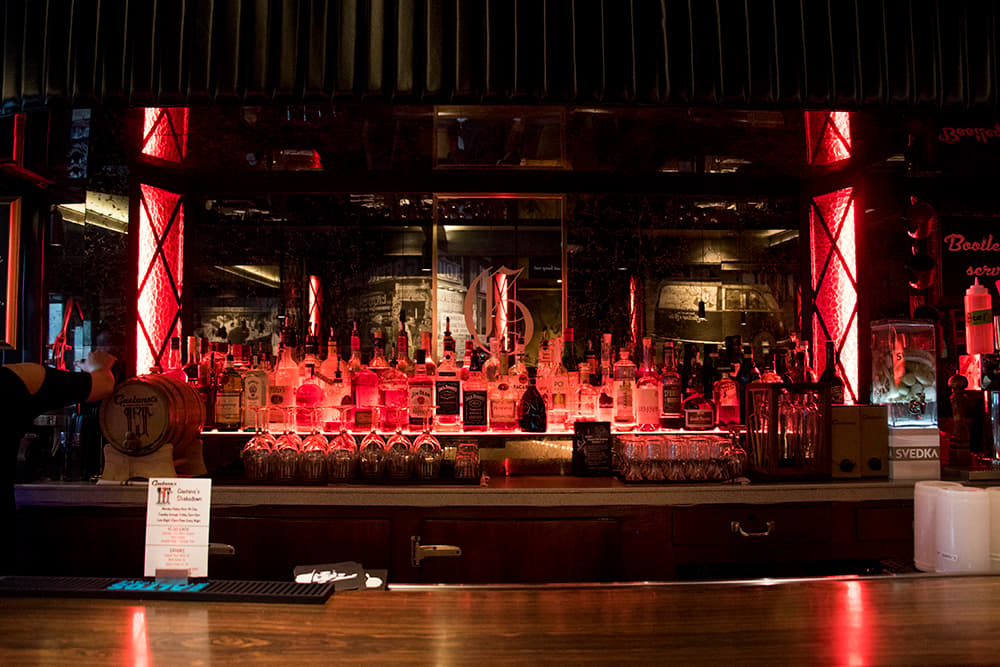
Ask a restaurant owner today about the biggest challenges in Denver's dining and nightlife industry and you'll hear about a staff shortage.
"You probably hear the same thing over and over again, and it’s relatively true," said Ron Robinson, owner of 70-year-old north Denver favorite Gaetano's. "It seems like trying to get good help is hard. I’m on Craigslist every week just looking for the right people. There’s such an influx of restaurants right now, it’s hard."
"We just hired 120 people. That’s not been without challenges," said Kevin Delk, owner of Beatrice & Woodsley and the soon-to-open Bang Up To The Elephant. "It’s super perplexing considering how many people have been moving into the city and so rapidly. We basically just keep running ads over and over."
"It’s a tough city. It’s getting more and more expensive. It’s getting harder and harder to compete as a restaurant," Peter Newlin, president of Park Burger, told Denverite last year. "Honestly, it scares me. It scares me because now there’s more of these jobs than there’ve ever been before. ... Years ago, we would have 70 people apply for one job. Now we have 70 jobs and it’s become harder and harder to develop and grow team members."
"They are all talking about the same thing, and that is the challenge of finding workers," said Carolyn Livingston, communications director for the Colorado Restaurant Association.
"Sometimes someone will call in Friday night or Saturday night and say, 'I got another job.' You don’t budget yourself for extra help," Robinson said. "You used to have an interview, bring the person in, eye-to-eye contact, seeing the guy’s not a serial killer. But nowadays, if there’s somebody on the other end breathing, you gotta hire that person."

Blame it on the boom.
It's true: You'd think that a bigger population would come with a bigger pool of potential workers. But it's not working out that way.
The problem is that the population boom has actually come with a bit of a restaurant boom, too.
According to Department of Revenue data, the Colorado restaurant industry had about $12 billion in sales in 2016, which Livingston says is up from up from $8 billion in 2010. The data also shows that the restaurant industry employed 280,000 people at 11,526 locations across the state in 2016 — about 10 percent of Colorado's employment.
In Denver alone, there were 44,503 employees at 2,033 establishments in 2016. That's up from 42,415 employees and 1,960 establishments in 2015 and 39,862 employees and 1,860 establishments in 2014. That's an 11.6 percent increase in employees and a 9.3 percent increase in establishments.
What that's meant for restaurateurs is that there just aren't that many skilled workers looking for jobs, and those that are have a lot of options.
"I have never experienced this in all my time in this industry," said Robinson, who's been in it for 30 years. In addition to having trouble finding qualified workers in the first place, he's been having trouble keeping them, too.
Delk has been in the business here in Denver for 20 years, and as he gets ready to open Bang Up To The Elephant in Capitol Hill, he's finding staffing harder than it was when he opened his first restaurant in 2003. Back then, he saw around 700 applications for 30 or 40 jobs in about a week and half.
It wasn't quite so dramatic when he opened Beatrice & Woodsley in 2008, but he saw a decent turnout of decent talent. But now, as he and his team prepare to open the doors at Bang Up To The Elephant, the pool is a lot shallower. He estimates that about one in five people who applied were actually qualified.
"It’s over-saturation," he said. "There’s so many options, you can kind of, as an employee, play the field a little bit. You arrive in Denver and I think you recognize pretty quickly that it’s a really strong restaurant scene, and if you need a job you can probably ask someone and find something pretty quickly."

Blame it on the weed... but only a little.
A lot of this gets chalked up to competition with the marijuana industry, though there's no data to really support that.
"It's all anecdotal," Livingston said. "There were a few reports out middle of last year that said the pot industry is stealing our employees, and that is true to a point, but our industry is five times the size of that industry."
And it's not just the marijuana industry, she said, it's things like construction and retail, too. Everyone is competing to hire.
"A lot of these kids are going to pick weed for $18 and hour," Robinson said. "The way this guy put it is, 'Who would want to work in a room with no windows for 60 hours a week and it's 90 degrees inside?' Some of these kids, they don’t wanna cook, they don’t wanna be in someplace hot, they just wanna sit down and pick weed and it’s $18 an hour and they get vision and medical benefits."
Delk says he's talked about it with his managers and staff, and they think the pot-cutting competition is a little overstated. Essentially, they're not so sure the two industries are looking to hire the same people.
"It is true that they’re getting paid pretty well, but most people who want to be in a kitchen want to be in it for a certain kind of passion or whatnot," Delk said. "Trading in being in a kitchen for pruning plants — that’s a big leap."

Eventually, the market should settle down.
"I think it has no choice but to settle down at some point," Livingston said. "Is that going to be soon? I don’t know."
A shortage of qualified workers is obviously a frustrating problem, but owners have little choice but to ride it out. To keep workers, they offer incentives and a good culture.
Gaetano's tries to keep kitchen staff around with the promise of learning to cook authentic Italian food — making pasta and desserts from scratch. Robinson also pointed out that a lot of restaurants are changing the way they accept and distribute tips in order to keep back-of-the-house staff happy and well paid, and said some restaurants will essentially offer a signing bonus.
The Colorado Restaurant Industry does a lot of workforce development, including a program called Colorado Pro Start that teaches high school to students the culinary side and the management side of the business. They're also looking at possible apprenticeship programs.
There's always an ambient threat of things getting a little too competitive, but as Livingston pointed out, "we’re Coloradans and we're super nice people, so there’s always been this handshake agreement of, 'We’re not going to steal your workers.'"
"The thing I would hate to see anyone resort to is poaching," Delk said. "I think up to this point we’ve been really good as a community of restaurateurs and chefs. Everybody's been really respectful and patient and trying to help in the correct kind of way."
It'll be difficult to predict when things will settle down. Livingston said the restaurant industry has always been "the bellwether of that sort of stuff," falling early in the recession but recovering first, too.
"You go day by day," Robinson said. "That’s all you can do."











